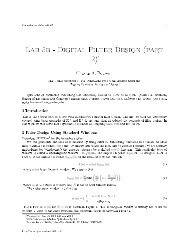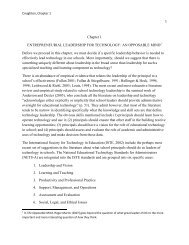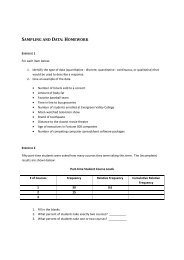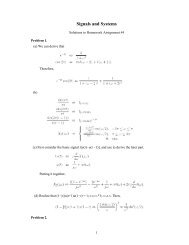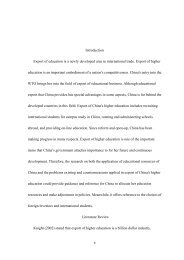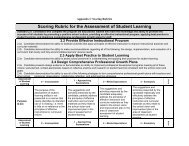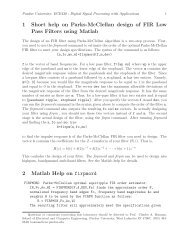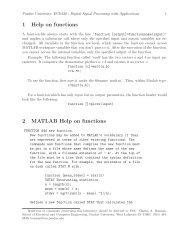24 INVITED CHAPTERS CONCLUSION This study examined teacher leaders’ utilization of political skill dimensions and influence tactics during their daily interactions with colleagues and principals. Micropolitical studies of political skill and influence in the context of educational organizations are uncommon, so this facet of research provided the potential for additional studies in the fields of educational and organizational research. The findings from this study suggested that school-based politics affect teacher leadership in both positive and negative ways. Through analysis, the researcher determined that acceptance of teacher leadership needs to take place through concerted efforts by faculties as a whole. In political organizations such as schools, traditional hierarchical perspectives of leadership must give way to the concept of shared leadership between principals and teacher leaders. Teacher leaders acknowledged that their involvement in the formal teacher leadership program cohorts allowed them to develop both the skills and the support networks necessary to successfully function as leaders within their individual buildings and at the district level. Relevant findings in teacher leadership and micropolitical studies in the area of school-based politics support these results (York-Barr & Duke, 2004; Zinn, 1997). Teacher leadership programs and school districts may benefit from the findings of this study. By administering the PSI and influence subscales to teachers and analyzing the data, teacher leader programs and school districts will have the capability to identify individuals who possess the capacity to assess complex social situations within the micropolitical context of the school and to know what to do to exert positive influence in those situations. Those teachers who show a propensity to lead may enhance their strengths and develop their areas of weaknesses in the political skill dimensions through professional development such as dramabased training, coaching, and mentoring programs (Ferris et al., 2005). Research on influence by Kipnis, Schmidt, and Wilkinson (1980) over thirty years ago asserted that everyone influences everyone else in organizations, regardless of his or her job title or position in the organization. These assertions are relevant today. Politically skilled teacher leaders acknowledged that they utilized influence tactics in upward and lateral ways to achieve their outcomes. It is worth noting that individuals did not necessarily use the same influence strategy in every situation. Similarly, different individuals chose different influence strategies when faced with similar situations. Higgins, Judge, and Ferris (1993) stated that politically skilled individuals tended to avoid certain tactics in favor of others, thereby, demonstrating that political skill use depends on the situation coupled with the flexibility to carry out influencing behaviors that are inherent in its components. A respondent to the reflective response portion of the Teacher Leader Questionnaire succinctly summarized these assertions, “I look at politics in the school setting as having a ‘tool box’ of strategies used to influence peers and supervisors. You need to know which tool to use at a given time.” Initially, it was proposed that teacher leaders are effective in the implementation of political skill when interacting with principals and with colleagues. The data acquired from this study supported this assumption regarding teacher leaders’ use of political skill dimensions and influence tactics. These data indicated that teacher leaders were motivated to use political skill and influence tactics and had the capability to utilize these political behaviors to attain their outcomes. Despite the political factors presented to discourage them, teacher leaders continued to emerge in leadership roles. They possessed both the political will and the political skill (Mintzberg, 1985; Treadway, Hochwarter, Kacmar, & Ferris, 2005) to be effective in the micropolitical environment of the school.
Micropolitics in the School: Teachers Leaders’ Use of Political Skill and Influence Tactics 25 REFERENCES Acker-Hocevar, M., & Touchton, D. (1999, April). A model of power as social relationships: Teacher leaders describe the phenomena of effective agency in practice. Paper presented at the annual meeting of the American Educational Research Association, Montreal, Quebec. Ackerman, R., & Mackenzie, S. (Eds.). (2006). Uncovering teacher leadership: Essays and voices from the field. Thousand Oaks, CA: Corwin Press. Ahern, K. K., Ferris, G. R., Hochwarter, W. A., Douglas, C., & Ammeter, A. P. (2004). Leader political skill and team performance. Journal of Management, 30(3), 309–327. Bacharach, S. (1983). Notes on a political theory of educational organizations (Report No. EA016651). Washington, DC: National Institute of Education. (ERIC Document Reproduction Service No. ED243175). Ball, S. J. (1987). The micropolitics of the school: Towards a theory of school organization. London: Methuen. Blase, J. (1990). Some negative effects of principals’ control-oriented and protective political behavior. American Educational Research Journal, 27(4), 727–753. Blase. J. (1991). The politics of life in schools: Power, conflict, and cooperation. London: <strong>New</strong>bury Park. Blase, J., & Anderson, G. L. (1995). The micropolitics of educational leadership. London: Cassell. Blase, J., & Blase, J. (2002). The micropolitics of instructional supervision: A call for research. Educational Administration Quarterly, 38,(1), 6–44. Blickle, G. (2000). Influence tactics used by subordinates: An empirical analysis of the Kipnis and Schmidt subscales. Psychological Reports, 86(1), 143–154. Boles, K., & Troen, V. (1996). Teacher leaders and power: Achieving school reform from the classroom. In R. Ackerman, G. Moller, & M. Katzenmeyer (Eds.), Realizing the potential of teacher leadership (pp. 275–285). San Francisco: Jossey-Bass. Bonner, M., Koch, T., & Langmeyer, D. (2004). Organizational theory applied to school reform: A critical analysis. School Psychology International, 25(4), 455–471. Caracelli, V., & Greene, J. C. (1993). Data analysis strategies for mixed-method evaluation designs. Educational Evaluation and Policy Analysis, 15(2), 195–207. Charbonneau, D. (2004). Influence tactics and perceptions of transformational leadership. Leadership and Organization Development Journal, 25(7), 565–576. Crowther, F., Kaagan, S., Ferguson, M., & Hann, L. (2002). Developing teacher leaders: How teacher leadership enhances school success. Thousand Oaks, CA: Corwin Press. Danielson, C. (2006). Teacher leadership that strengthens professional practice. Alexandria, VA: Association for Supervision and Curriculum Development. Donaldson, G. A. (2007). What do teachers bring to leadership? Educational Leadership, 65(1), 27–29. Du, F. (2005). Micropolitical perspectives of teacher leaders in an elementary school. Unpublished doctoral dissertation, University of Georgia, Athens. Farmer, S. M., & Maslyn, J. M. (1999). Why are styles of upward influence neglected? Journal of Management, 25(1), 653–682. Ferris, G. R., Davidson, S., & Perrewé, P. L. (2005). Political skill at work: Impact on work effectiveness. Mountain View, CA: Davies-Black. Ferris, G. R., Treadway, D. C., Kolodinsky, R. W., Hochwarter, W. A., Kacmar, C. J., Douglas, C. (2005). Development and validation of the political skill inventory. Journal of Management, 31(1), 126–152 Ferris, G. R., Treadway, D. D., Perrewé, P. L., Brouer, R. L., Douglas, C., & Lux, S. (2007). Political skill in organizations. Journal of Management, 33(3), 290–320. Haag, S. (1995). The possibility of reform: Micropolitics in educational institutions. Unpublished doctoral dissertation, Arizona State University, Tempe. Hargreaves, A. (1991). Contrived collegiality: The micropolitics of teacher collaboration. In J. Blase (Ed.), The politics of life in schools: Power, conflict, and cooperation. (pp. 46–72). Thousand Oaks, CA: Sage. Higgins, C. A., Judge, T. A., & Ferris, G. R. (2003). Influence tactics and work outcomes: A meta-analysis. Journal of Organizational Behavior, 24, 89–106. Retrieved July 8, 2008, from http://www.interscience.wiley.com/10.1002/job.181. Hoyle, E. (1986). The management of schools: Theory and practice. In E. Hoyle & A. McMahon (Eds.), World yearbook of education 1986: The management of schools (pp. 11–26). London: Kogan Page. Iannaccone, L. (1975). Educational policy systems. Fort Lauderdale, FL: Nova University Press. Iannaccone, L. (1991). Micropolitics of education: What and why. Education and Urban Society, 23(4), 465–471.
- Page 1 and 2: 20 NCPEA 11 BLAZING NEW TRAILS: Pre
- Page 3 and 4: NCPEA EXECUTIVE BOARD 2010-2011 Pre
- Page 5 and 6: NCPEA HONOR ROLL OF PRESIDENTS, 194
- Page 7 and 8: TABLE OF CONTENTS Contributing Auth
- Page 9: Betty J. Alford, Stephen F. Austin
- Page 12 and 13: xii Yearbook Reviewers Kenneth Rasm
- Page 15: INVITED CHAPTERS PART 1
- Page 18 and 19: 4 PRESIDENT’S MESSAGE (3) The fed
- Page 21 and 22: Shadows and Images II 7 LIVING LEGE
- Page 23 and 24: Shadows and Images II 9 see little
- Page 25 and 26: Shadows and Images II 11 settings,
- Page 27: Shadows and Images II 13 into the m
- Page 30 and 31: 16 INVITED CHAPTERS Purpose of the
- Page 32 and 33: 18 INVITED CHAPTERS do not recogniz
- Page 34 and 35: 20 INVITED CHAPTERS Research Proced
- Page 36 and 37: 22 INVITED CHAPTERS Political maneu
- Page 40 and 41: 26 INVITED CHAPTERS Johnson, R. B.,
- Page 43 and 44: Complexities in the Workload of Pri
- Page 45 and 46: Complexities in the Workload of Pri
- Page 47 and 48: Complexities in the Workload of Pri
- Page 49 and 50: Complexities in the Workload of Pri
- Page 51 and 52: Complexities in the Workload of Pri
- Page 53 and 54: Complexities in the Workload of Pri
- Page 55 and 56: Complexities in the Workload of Pri
- Page 57 and 58: Complexities in the Workload of Pri
- Page 59 and 60: Complexities in the Workload of Pri
- Page 61 and 62: 47 CRITICAL ISSUES IN SHARED LEADER
- Page 63 and 64: Professional Learning Communities:
- Page 65 and 66: Professional Learning Communities:
- Page 67 and 68: Professional Learning Communities:
- Page 69 and 70: Professional Learning Communities:
- Page 71: Professional Learning Communities:
- Page 74 and 75: 60 CRITICAL ISSUES IN SHARED LEADER
- Page 76 and 77: 62 CRITICAL ISSUES IN SHARED LEADER
- Page 78 and 79: 64 CRITICAL ISSUES IN SHARED LEADER
- Page 80 and 81: 66 CRITICAL ISSUES IN SHARED LEADER
- Page 82 and 83: 68 CRITICAL ISSUES IN SHARED LEADER
- Page 84 and 85: 70 CRITICAL ISSUES IN SHARED LEADER
- Page 86 and 87: 72 CRITICAL ISSUES IN SHARED LEADER
- Page 88 and 89:
74 CRITICAL ISSUES IN SHARED LEADER
- Page 90 and 91:
76 CRITICAL ISSUES IN SHARED LEADER
- Page 92 and 93:
78 CRITICAL ISSUES IN SHARED LEADER
- Page 95 and 96:
81 CRITICAL ISSUES IN SHARED LEADER
- Page 97 and 98:
Special Education Director Burnout
- Page 99 and 100:
Special Education Director Burnout
- Page 101 and 102:
Special Education Director Burnout
- Page 103 and 104:
Special Education Director Burnout
- Page 105 and 106:
Special Education Director Burnout
- Page 107 and 108:
93 CRITICAL ISSUES IN SHARED LEADER
- Page 109 and 110:
Superintendent Decision-making and
- Page 111 and 112:
Superintendent Decision-making and
- Page 113 and 114:
Superintendent Decision-making and
- Page 115 and 116:
Superintendent Decision-making and
- Page 117 and 118:
Superintendent Decision-making and
- Page 119 and 120:
Superintendent Decision-making and
- Page 121 and 122:
Superintendent Decision-making and
- Page 123 and 124:
CRITICAL ISSUES IN CRITICAL ISSUES
- Page 125 and 126:
Administrative Functions The Admini
- Page 127 and 128:
The Administration of Special Educa
- Page 129 and 130:
The Administration of Special Educa
- Page 131 and 132:
The Administration of Special Educa
- Page 133:
The Administration of Special Educa
- Page 137 and 138:
CRITICAL ISSUES IN PROMOTING ACADEM
- Page 139 and 140:
The Effective Practices and Beliefs
- Page 141 and 142:
The Effective Practices and Beliefs
- Page 143 and 144:
The Effective Practices and Beliefs
- Page 145 and 146:
The Effective Practices and Beliefs
- Page 147 and 148:
The Effective Practices and Beliefs
- Page 149 and 150:
CRITICAL ISSUES IN PROMOTING ACADEM
- Page 151 and 152:
Creating Shared Meaning in High Per
- Page 153 and 154:
Creating Shared Meaning in High Per
- Page 155 and 156:
Creating Shared Meaning in High Per
- Page 157 and 158:
Creating Shared Meaning in High Per
- Page 159 and 160:
Creating Shared Meaning in High Per
- Page 161 and 162:
Creating Shared Meaning in High Per
- Page 163 and 164:
Creating Shared Meaning in High Per
- Page 165 and 166:
Creating Shared Meaning in High Per
- Page 167 and 168:
Creating Shared Meaning in High Per
- Page 169 and 170:
Creating Shared Meaning in High Per
- Page 171 and 172:
Creating Shared Meaning in High Per
- Page 173:
Creating Shared Meaning in High Per
- Page 176 and 177:
162 CRITICAL ISSUES IN PROMOTING AC
- Page 178 and 179:
164 CRITICAL ISSUES IN PROMOTING AC
- Page 180 and 181:
166 CRITICAL ISSUES IN PROMOTING AC
- Page 182 and 183:
168 CRITICAL ISSUES IN PROMOTING AC
- Page 184 and 185:
170 CRITICAL ISSUES IN PROMOTING AC
- Page 186 and 187:
172 CRITICAL ISSUES IN PROMOTING AC
- Page 188 and 189:
174 CRITICAL ISSUES IN PROMOTING AC
- Page 190 and 191:
176 CRITICAL ISSUES IN PROMOTING AC
- Page 193 and 194:
CRITICAL ISSUES IN PROMOTING ACADEM
- Page 195 and 196:
Principals and Teachers Stated Beli
- Page 197 and 198:
Principals and Teachers Stated Beli
- Page 199 and 200:
Principals and Teachers Stated Beli
- Page 201 and 202:
Principals and Teachers Stated Beli
- Page 203 and 204:
Principals and Teachers Stated Beli
- Page 205 and 206:
Principals and Teachers Stated Beli
- Page 207 and 208:
Principals and Teachers Stated Beli
- Page 209 and 210:
Principals and Teachers Stated Beli
- Page 211 and 212:
Principals and Teachers Stated Beli
- Page 213 and 214:
CRITICAL ISSUES IN PROMOTING ACADEM
- Page 215 and 216:
Distinguishing Practices for Admini
- Page 217 and 218:
Distinguishing Practices for Admini
- Page 219 and 220:
Distinguishing Practices for Admini
- Page 221 and 222:
Distinguishing Practices for Admini
- Page 223 and 224:
Distinguishing Practices for Admini
- Page 225:
CRITICAL ISSUES IN SCHOOL IMPROVEME
- Page 228 and 229:
214 CRITICAL ISSUES IN SCHOOL IMPRO
- Page 230 and 231:
216 CRITICAL ISSUES IN SCHOOL IMPRO
- Page 232 and 233:
218 CRITICAL ISSUES IN SCHOOL IMPRO
- Page 234 and 235:
220 CRITICAL ISSUES IN SCHOOL IMPRO
- Page 236 and 237:
222 CRITICAL ISSUES IN SCHOOL IMPRO
- Page 238 and 239:
224 CRITICAL ISSUES IN SCHOOL IMPRO
- Page 240 and 241:
226 CRITICAL ISSUES IN SCHOOL IMPRO
- Page 242 and 243:
228 CRITICAL ISSUES IN SCHOOL IMPRO
- Page 244 and 245:
230 CRITICAL ISSUES IN SCHOOL IMPRO
- Page 246 and 247:
232 CRITICAL ISSUES IN SCHOOL IMPRO
- Page 248 and 249:
234 CRITICAL ISSUES IN SCHOOL IMPRO
- Page 250 and 251:
236 CRITICAL ISSUES IN SCHOOL IMPRO
- Page 252 and 253:
238 CRITICAL ISSUES IN SCHOOL IMPRO
- Page 254 and 255:
240 CRITICAL ISSUES IN SCHOOL IMPRO
- Page 256 and 257:
242 CRITICAL ISSUES IN SCHOOL IMPRO
- Page 258 and 259:
244 CRITICAL ISSUES IN SCHOOL IMPRO
- Page 260 and 261:
246 CRITICAL ISSUES IN SCHOOL IMPRO
- Page 262 and 263:
248 CRITICAL ISSUES IN SCHOOL IMPRO
- Page 264 and 265:
250 CRITICAL ISSUES IN SCHOOL IMPRO
- Page 266 and 267:
252 CRITICAL ISSUES IN SCHOOL IMPRO
- Page 268 and 269:
254 CRITICAL ISSUES IN SCHOOL IMPRO
- Page 270 and 271:
256 CRITICAL ISSUES IN SCHOOL IMPRO
- Page 272 and 273:
258 CRITICAL ISSUES IN SCHOOL IMPRO
- Page 274 and 275:
260 CRITICAL ISSUES IN SCHOOL IMPRO
- Page 276 and 277:
262 CRITICAL ISSUES IN SCHOOL IMPRO
- Page 278 and 279:
264 CRITICAL ISSUES IN SCHOOL IMPRO
- Page 280 and 281:
266 CRITICAL ISSUES IN SCHOOL IMPRO
- Page 282 and 283:
268 CRITICAL ISSUES IN SCHOOL IMPRO
- Page 284 and 285:
270 CRITICAL ISSUES IN SCHOOL IMPRO
- Page 287 and 288:
273 CRITICAL ISSUES IN SCHOOL IMPRO
- Page 289 and 290:
The Social Justice Implications of
- Page 291 and 292:
The Social Justice Implications of
- Page 293 and 294:
The Social Justice Implications of
- Page 295 and 296:
The Social Justice Implications of
- Page 297 and 298:
The Social Justice Implications of
- Page 299 and 300:
285 CRITICAL ISSUES IN SCHOOL IMPRO
- Page 301 and 302:
Name Exton Gateway Experiences with
- Page 303 and 304:
Experiences with PTELL in Six Illin
- Page 305 and 306:
Experiences with PTELL in Six Illin
- Page 307 and 308:
Experiences with PTELL in Six Illin
- Page 309:
Part 5 CRITICAL ISSUES IN EDUCATION
- Page 312 and 313:
298 CRITICAL ISSUES IN EDUCATION LE
- Page 314 and 315:
300 CRITICAL ISSUES IN EDUCATION LE
- Page 316 and 317:
302 CRITICAL ISSUES IN EDUCATION LE
- Page 318 and 319:
304 CRITICAL ISSUES IN EDUCATION LE
- Page 320 and 321:
306 CRITICAL ISSUES IN EDUCATION LE
- Page 322 and 323:
308 CRITICAL ISSUES IN EDUCATION LE
- Page 324 and 325:
310 CRITICAL ISSUES IN EDUCATION LE
- Page 326 and 327:
312 CRITICAL ISSUES IN EDUCATION LE
- Page 328 and 329:
314 CRITICAL ISSUES IN EDUCATION LE
- Page 330 and 331:
316 CRITICAL ISSUES IN EDUCATION LE
- Page 333 and 334:
CRITICAL ISSUES IN EDUCATION LEADER
- Page 335 and 336:
Service to the Profession: The Forg
- Page 337 and 338:
Service to the Profession: The Forg
- Page 339 and 340:
Qualitative Data Service to the Pro
- Page 341 and 342:
Service to the Profession: The Forg
- Page 343:
Service to the Profession: The Forg
- Page 346 and 347:
332 CRITICAL ISSUES IN EDUCATION LE
- Page 348 and 349:
334 CRITICAL ISSUES IN EDUCATION LE
- Page 350 and 351:
336 CRITICAL ISSUES IN EDUCATION LE
- Page 352 and 353:
338 CRITICAL ISSUES IN EDUCATION LE
- Page 354 and 355:
340 CRITICAL ISSUES IN EDUCATION LE
- Page 356 and 357:
342 CRITICAL ISSUES IN EDUCATION LE
- Page 358 and 359:
344 CRITICAL ISSUES IN EDUCATION LE
- Page 360 and 361:
346 CRITICAL ISSUES IN EDUCATION LE
- Page 362 and 363:
348 CRITICAL ISSUES IN EDUCATION LE
- Page 364 and 365:
350 CRITICAL ISSUES IN EDUCATION LE
- Page 366 and 367:
352 CRITICAL ISSUES IN EDUCATION LE



